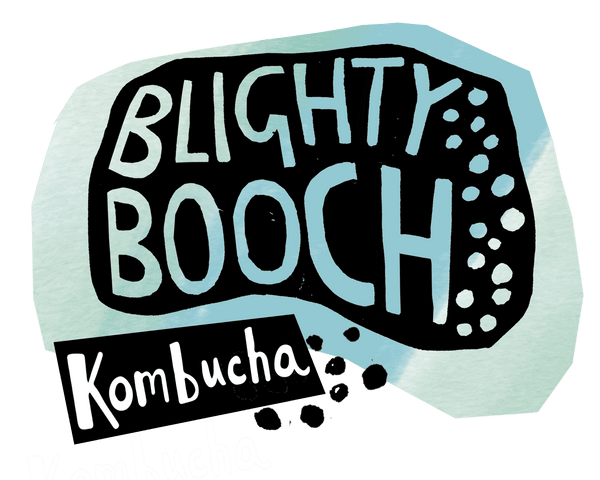Benefits of Our Kombucha
What are the benefits of drinking our Kombucha?
The rise in popularity of fermented products is due to being at the forefront of food and beverage trends, with the plethora of health associated benefits. Kombucha tea is a cold sweetened tea, fermented with a symbiotic living culture of bacteria and yeasts, and has acquired significant interest due to its claimed beneficial health-giving and wellness properties, captivating many consumers keen to tackle their own health naturally, without medical interventions.
A key factor in the investigation of the beneficial health-giving and wellness properties of Kombucha in humans is to investigate the metabolism and excretion kinetics of Kombucha, and the concentrations of key metabolites within the brew. We are studying this with the WEFO funded Future Foods Programme at Aberystwyth University, looking at ‘Functional Foods’, using high resolution metabolomics and quantification methods.
The tea used in Blighty Brew and Blighty Booch Conwy Kombucha is sourced from China due to its high L-theanine levels and organic certification. The water used in the kombucha blend is Welsh water- a product where ‘two ancient dragons meet’.
The key to Blighty Booch’s kombuchas health halo include:
- Probiotic’s properties and the effects on individuals gut microbiomes
- Active polyphenols (such as catechins), flavonoids and phenolics and their antioxidant activity
- Amino acids- e.g. L-theanine, leucine and isoleucine
- Organic acids; gluconic, glucuronic, lactic and acetic acids
- Minerals; potassium, magnesium, calcium and iron
- Vitamins C, B1, B6, B9
These health attributes are driven by the high quantities of bioactive compounds antioxidants, polyphenols, microbial and metabolite composition that elicit their own credible assumptions for health associations produced during the fermentation process.
What is Kombucha?
Authentic Kombucha is a fermented, live, unfiltered, un-pasteurised and small batch Tea. The rise in popularity of Kombucha and widespread habitual acceptance of its unusual taste has captivated many consumers keen to tackle their own health naturally, without medical interventions.
Where does our Kombucha come from?
Kombucha is believed to have first been discovered in China thousands of years ago. Legend says a jug of tea was left out and got a bit funky! Fermented plant juice is likely to have been in existence as long as man has walked the earth.
Conwy, where we brew is WHO protected site and our 1000 SQft Innovation unit is a mile from the city walls on the A55. Not quite the Great Wall but we are fond of our fantastic ancient wall!
What does our Kombucha taste like?
Blighty Booch Kombucha has a tangy flavour profile that is completely unique. It can be flavoured with various juices and extracts, we are particularly fond of the amazing combination of Organic Ginger - so is everyone else.
What is Scoby?
“Scoby” is an acronym: Symbiotic Culture Of Bacteria and Yeast. A scoby is the living home for the bacteria and yeast that transform sweet tea into tangy, fizzy kombucha. This mat of bacterial cellulose in the bottle is safe for all living things and edible.
What do you mean by "living" Kombucha?
Not all Kombucha is created equal. We do not force-carbonate our Kombucha (all that fizz is natural fermentation). Blighty Booch is also un-pasteurised, so all of the probiotics are alive.
Health benefits of kombucha, Is Kombucha good for you?
How Much Blighty Booch Kombucha should I have?
Everyone's microbiome is different. Everything in moderation, try a small glass for a few days and increase from there. You are an individual, work to your own body!
Kombucha for IBS/IBD
Kombucha is fermented tea. It's already a popular alcohol substitute but may provide health and wellbeing benefits beyond alcohol reduction.
Western "sterile" diets are linked to a rising incidence of chronic disease. Existing research suggests that Kombucha consumption may help alleviate or prevent several chronic diseases (type II diabetes, nephrotoxicity, hepatotoxicity, IBD and myocardial infarction), due to being a rich source of both pre-and-probiotics which can improve gut health, leading to improved mental health (Dufresne et al., 2000).




